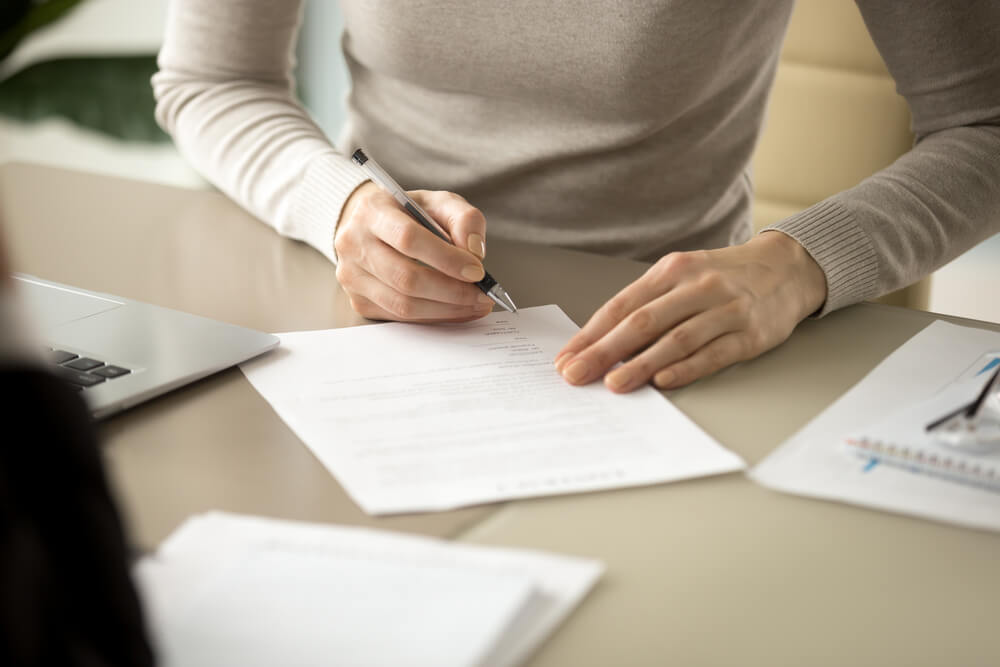When you’re struggling with debts, you might decide to opt for Bankruptcy or a Debt Relief Order (DRO), and as such you will then have to deal with an Official Receiver.
In this guide, we’ll explain more about who the official receiver is, the role they play in the personal insolvency process, and what information you will be expected to provide in order to co-operate with the official receiver.
Who is the official receiver?
Official receivers are civil servants that work within the Insolvency Service and are officers of the court. They are responsible for administering the initial stages of your bankruptcy or DRO.
They are debt professionals who manage the paperwork and process on your behalf, performing much the same role as a private sector insolvency practitioner when it comes to debt solutions like an Individual Voluntary Arrangement.
Why choose Creditfix?
What is the role of the official receiver?
As a civil servant working in insolvency, the job of an official receiver is to ensure that your bankruptcy or DRO proceeds as smoothly as possible.
Their duties include notifying your creditors of your agreement, collecting any assets you have to be sold, and investigating your financial affairs. This is to ensure that you do not breach the restrictions put on you during the bankruptcy/relief period.
In DRO cases, it’s also down to the official receiver to assess your application and decide where it will be granted or not.
What does the official receiver check?
Once your insolvency order is made, the official receiver will examine information from various sources in order to determine how much debt you have, and whether you have the income available to make a payment towards your debts.
As part of this process, the official receiver will look at:
Bank accounts
When you go bankrupt, you will need to be interviewed by the official receiver.
This will require you to take several pieces of paperwork, including bank statements from your main bank accounts.
Bank statements
While the official receiver cannot physically check your bank account, they will go through all the transactions in your bank statements to get an overview of your finances.
Once they have thoroughly examined your bank statement, it’s then up to them to distribute any profits from your bank accounts and savings to pay creditors – the people you owe money to.
How to co-operate with the official receiver
It’s the official receiver’s duty to investigate ‘the conduct and financial affairs of the bankrupt for the period leading up to his/her bankruptcy’. This is done to help them determine the reason that you haven’t been able to keep on top of your debts.
As part of this process, the official receiver may ask you to cooperate with them in various ways.
Official receiver questionnaire
The official receiver often sends a questionnaire to individuals undergoing bankruptcy. This questionnaire is designed to help them gather as much information as possible about your financial situation before the official receiver interview.
You will be expected to provide information about your income and expenditure to help them calculate if you can afford to make any payments towards your debt throughout your bankruptcy (known as an Income Payments Agreement).
Official receiver interview
Within ten working days of declaring bankruptcy (or your bankruptcy order being made), you will be expected to conduct an interview with the official receiver.
This helps the official receiver investigate your financial records more thoroughly. They will check the information you provided in your questionairre, ask questions about your personal assets (or company’s assets), and answer any questions you may have about the process of going bankrupt.
Can official receiver take money after discharge?
This will be dependent on whether or not it’s agreed that you will pay income payments.
Sometimes, if you have some disposable income, the official receiver will organise for you to make payments into a ‘income payment agreement/order’ (IPA/O). This will last for three years, even though you are discharged from bankruptcy after 12 months – however, this may be altered if your circumstances or income changes
If you have missed any payments during this time, then the official receiver can chase you for these.
"Professional staff - they were understanding and non-judgmental. Fantastic, quick service too. Would recommend to anyone!" Michael, SunderlandHow we helped Michael
Can the official receiver take my inheritance?
This again, will be dependent on a few things; mainly the point at which you receive the inheritance funds.
If this was before you went bankrupt, then it will be counted as an asset and will be taken by the official receiver.
In cases where you receive inheritance after you have been declared bankrupt but you haven’t been discharged yet, you will need to notify the official receiver and they will claim it.
If you get inheritance after you’ve been discharged, then the funds will belong to you. You are not required to notify the official receiver and they cannot take any of the money.
Can the official receiver take my pension?
Savings within a pension fund aren’t counted as an asset within bankruptcy, which means that in most cases the official receiver can’t take this from you.
However, in situations where you have made high contributions to your pensions or your scheme is not approved by HMRC then the official receiver can take from this.
In other cases, where you are able to take a lump sum from your pension at the time of your bankruptcy application that’s enough to clear your debts, then it could be refused.
Can Official Receiver take my car?
Unfortunately, your car can be affected in both bankruptcy and a DRO – if you own it outright. In these cases, it will be counted as an asset and will either be claimed by the official receiver or your application will be refused.
If your car is on hire purchase or you got it through a conditional sales agreement, then the official receiver may allow you to keep it. This is because it technically doesn’t belong to you until you’ve paid it up.
However, you may still be forced to give up your car as the DRO or bankruptcy may prevent you from continuing to make the payments.
If you’re looking to keep your car, you do have the option to let someone else buy it (at its proper value) and then allow you to continue to use it. But, if you buy a new car with your own money or money given to you, then it will be taken by the official receiver to be sold towards your debts.
How far back does official receiver go?
The official receiver will look into your financial affairs in the period leading up to bankruptcy. This will usually be any transactions you have made within five years prior to your application that relate to the sale or distribution of assets, but it can differ from case to case depending on your situation.
The reason for this is to check if you have sold anything for less than it’s worth (undervalue). If anything is found, the official receiver will reverse the transaction and bring the item in to form part of your estate.
Lying to the official receiver
It’s considered an offence to lie to the official receiver about anything in your finances when applying for bankruptcy or a DRO.
It’s also important not to hide any assets such as foreign properties or anything you own that’s worth more than £500 as these need to be handed over to be sold towards your debts.
If you’re are caught lying to the official receiver, then you will be punished by way of a hefty fine or up to seven years in prison – and in some cases it’s both. On top of this, you could also be given a Bankruptcy Restriction Order (BRO), which means that the restrictions you were already under could be extended for up to 15 years.
What punishment you receive will depend on how bad the offence you commit is, they tend to be more severe if the offence is more serious.
Where can I get more advice on What does the official receiver check? and other debt solutions?
To discuss your options and get the support you need to deal with your debt today, contact us now on 0800 0431 431 or click the button to get started




